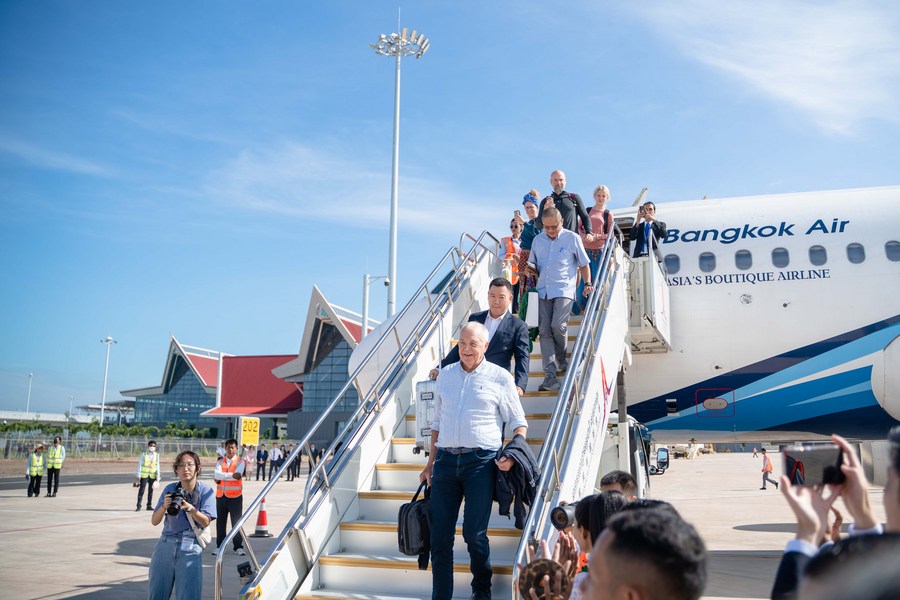Chinese-invested airport in Cambodia catalyst for tourism, economic growth: PM

Passengers disembark from a plane at the Chinese-invested Siem Reap Angkor International Airport (SAI) in Siem Reap province, Cambodia on Oct. 16, 2023. (Photo by Sao Khuth/Xinhua)
PHNOM PENH, Nov. 1 (Xinhua) -- The Chinese-invested Siem Reap Angkor International Airport (SAI) in northwest Cambodia will be a catalyst for the country's tourism and economic growth, Cambodian Prime Minister Hun Manet said on Tuesday.
Located in Sotr Nikum district in Siem Reap province, the 4E-level international airport covering an area of 700 hectares, started its commercial operation on Oct. 16.
"It will become strong and important absorbing potential for the tourism sector in Siem Reap province in particular, and for the entire tourism industry in the country in general," he said in a text released in his official Telegram channel.
"It will also be able to attract investors as well as provide economic benefits to local people," he added.
Hun Manet said the airport, situated roughly 40 km from the UNESCO-listed Angkor Archeological Park and 50 km from Siem Reap provincial town, is a blend of "culture, nature and smartness".
He added that the airport has promoted connectivity and efficiency in the transportation and logistics sectors in the Southeast Asian country.
The airport is invested by the Angkor International Airport Investment (Cambodia) Co., Ltd., an affiliate of China's Yunnan Investment Holdings Ltd..
The airport is expected to be able to handle 7 million air passengers per year from 2024 and up to 12 million passengers annually from 2040.
Sinn Chanserey Vutha, undersecretary of state and spokesperson for the State Secretariat of Civil Aviation, said that with a 3,600-meter runway, SAI can accommodate long-distance flights from around the world.
"SAI is the fruit of close cooperation between Cambodia and China under the Belt and Road Initiative," he told Xinhua. "We hope the airport will attract new international airlines to operate direct flights to Siem Reap province."


